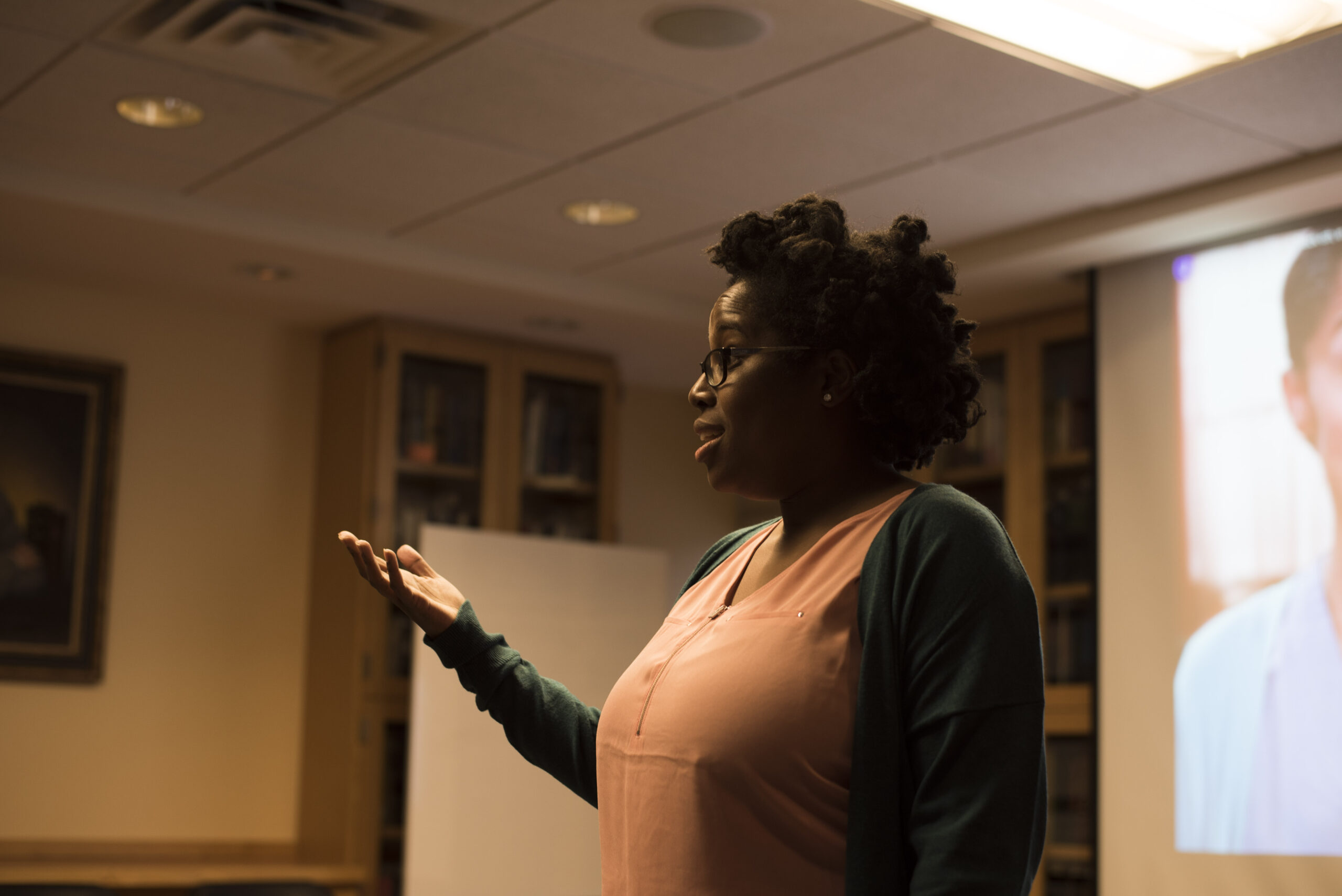Chryl Laird to publish book about Black political behavior
February 14, 2020
 Mackey O'Keefe
Mackey O'KeefeTeaching a full course load, firing back against Twitter trolls and publishing a book eight years in the making—Assistant Professor of Government and Legal Studies Chryl Laird is doing it all.
On February 25, Laird and Ismail K. White, associate professor of political science at Duke University, are set to release their book, “Steadfast Democrats: How Social Forces Shape Black Political Behavior.” The book was a collaborative effort between the two that began while Laird was in graduate school in 2012. In the book, Laird and White set out to answer the question: how have Blacks maintained Democratic party loyalty for the last 50 years?
At her book launch in Hawthorne-Longfellow Library on Wednesday, Laird introduced herself and pulled up a three-minute clip from the show “Black-ish” in which Dre, the father on the show, berates his son for joining the school Republicans club. Laird used the clip to illustrate the hypothesis she and her co-author tested with multiple assessment and analyses: that when members of the Black community ‘step out of line’ politically, they are marked as those who do not act or vote for the benefit of their larger community and receive social censure in response.
In the past week alone, Laird’s scholarship has garnered impressive press coverage. On February 11, Laird and White published an article titled, “Why Black Voters Stick with Democrats.” Their work was also featured in a Washington Post opinion article “Why President Trump’s bid for the black vote is unlikely to bear fruit.” She is scheduled to appear on CNN with Don Lemon in the near future.
In these pieces and in their book, the authors push back against the longstanding academic principle of linked fate: the idea that people within a specific demographic will act in a way that benefits their group and, thus, themselves as a trickle-down effect. Laird and White argue that racialized social constraint, or in this case, peer pressure from the Black community, is more indicative in how people vote on the national election scale. Black people vote accordingly in order to maintain their standing within the community.
Laird has been able to integrate her research into her teaching in her classes Race, Ethnicity, and Politics, and Urban Politics.
Laird said that she hopes that her students will be able to learn from her work.
“You can study marginalized populations as the focus of your work and [see] these populations as populations that have agency,” she said.
Laird noted that these groups are often treated in comparison to the majority, and researchers often fail to dig deeply into figuring out what discriminated populations are thinking. The authors attempt to expand the voices of minority voters—not just as a proxy for understanding majority interest but as a simultaneously heterogeneous and cohesive voting bloc.
Laird concluded, “We want to give a community voice and that was able to be done through this book.”

Comments
Before submitting a comment, please review our comment policy. Some key points from the policy: